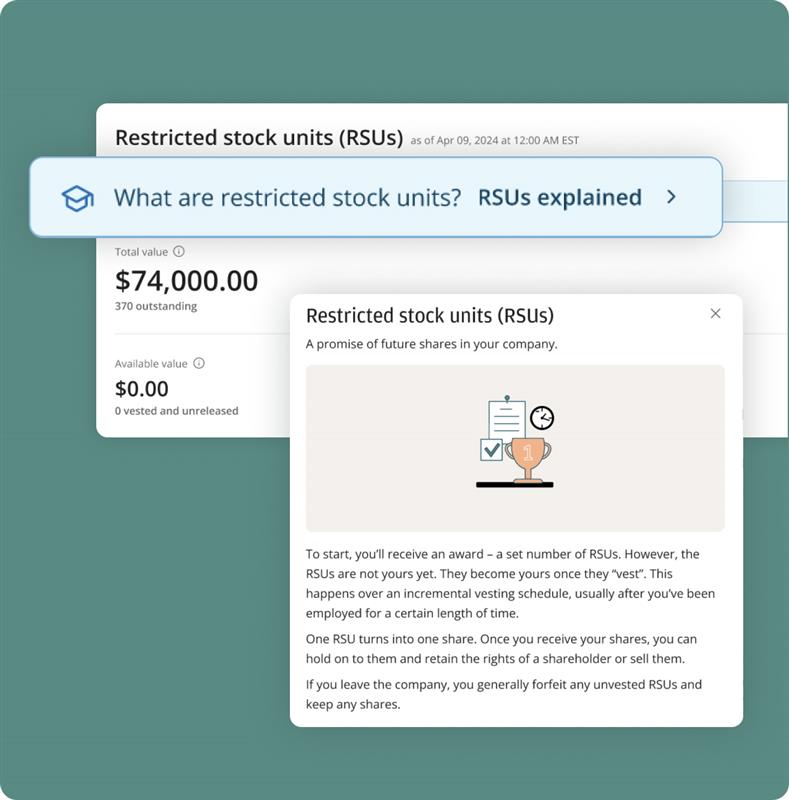Recruit, reward, retain
A compelling, financial incentives offering can help
your company stand out in a competitive market.
Equity plan management
Streamline complex stock plan admin
Simplicity is everything. You want a straightforward and intuitive experience, from executives through to entry-level employees. Our system can generate real-time reports to aid analytics and tracking performance, with the ability to integrate with a range of existing systems efficiently, saving you time.

Communication and education
Inform. Educate. Inspire
For a great share plan to succeed it needs to be backed by a comprehensive communications strategy, one that educates and inspires. Our in-depth communications packages can help your people understand the value of what you’re offering, with access to information in a range of languages.

Employee Engagement
Boost participation
When employees have a clear understanding of the value of their equity, they’re empowered to make informed decisions about their equity and their financial future. Through our dedicated mobile app your employees can view their rewards, sell shares, accept grants, exercise options and even vote in your company’s AGM—all through one easy-to-use portal.

Benefits
-
Enhance employee satisfaction
Great employees are what help companies succeed. Having an equity plan offering can not only help boost employee engagement and motivation, but could also be instrumental when it comes to retaining top quality staff, and act as a unique enticement when it comes to recruitment.
-
Streamline HR processes
Share plan admin is time consuming with multiple elements, like vesting schedules and terminations, to track. With a fully digitized system you can save time and cut down the risk of manual errors, while the API interface allows for integration with a range of other systems.
-
Compliance
From dealing with reporting and tax requirements in different jurisdictions to navigating local regulations, knowing that you’re working with a trusted provider who can help ensure your share plans are compliant wherever your company operates, equals peace of mind.
Our equity compensation solutions
can help give you a competitive edge
in talent acquisition.
Discover our tailored solutions
Related insights
-
ESPP vs RSU – Making an informed decision
April 16, 2025
-
Employee Stock Option Software
April 15, 2025
-
Employee stock purchase plan – ESPP
March 11, 2025



